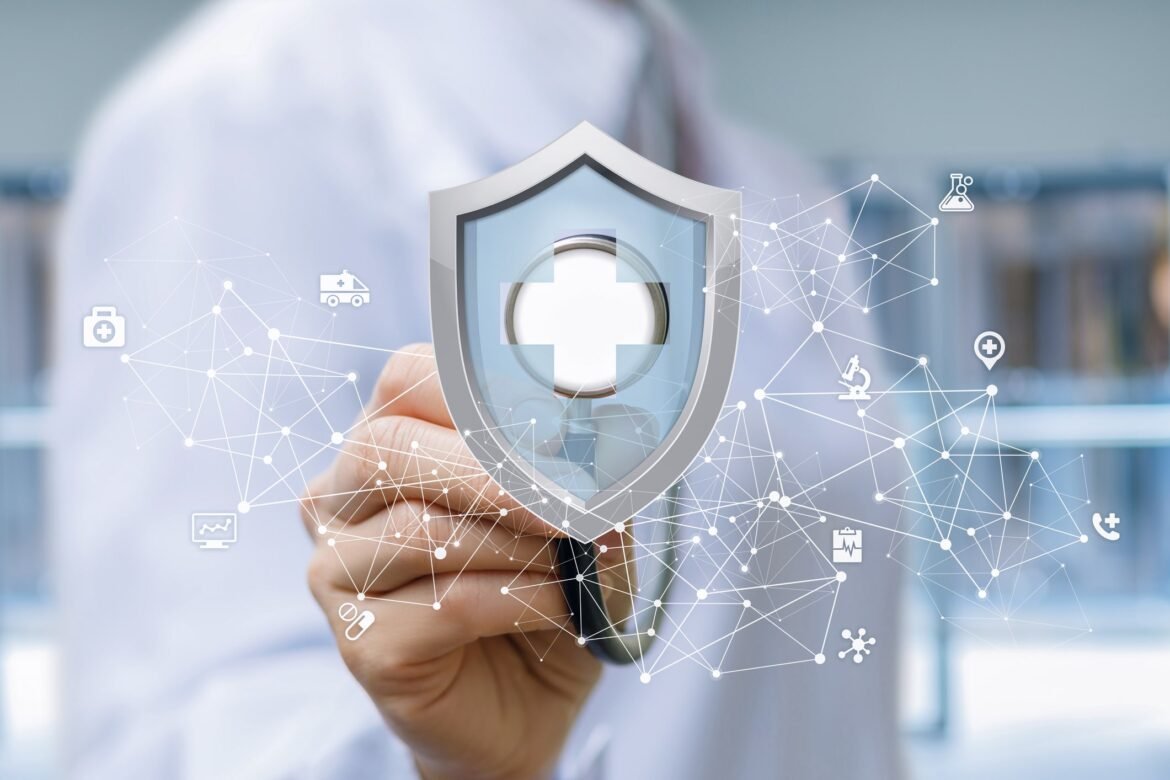In today’s digital landscape, businesses face constant threats from cyberattacks, data breaches, and evolving security risks. With the rapid growth of technology and remote workforces, the need for robust cybersecurity has never been more critical. However, many small to mid-sized businesses struggle to afford a full-time Chief Information Security Officer (CISO). This is where a Virtual Chief Information Security Officer (VCISO) comes into play. A VCISO provides companies with the expertise and leadership needed to safeguard their digital assets without the costs associated with hiring a full-time executive.
A VCISO brings a strategic approach to managing cybersecurity, risk management, compliance, and crisis response. Whether you’re a startup or a growing business, a VCISO can tailor your security protocols to ensure that your organization is well-prepared to handle any cyber challenges. Let’s dive deeper into what a VCISO is, why it’s valuable, and how it can significantly strengthen your business’s security posture.
What is a VCISO?
A Virtual Chief Information Security Officer (VCISO) is a cybersecurity expert who offers services similar to a full-time CISO but on a part-time or contract basis. They are responsible for developing and overseeing an organization’s information security strategy, ensuring that sensitive data and systems are protected from cyber threats. Unlike a traditional CISO, a VCISO operates remotely, making them a more affordable and flexible option for smaller companies or those in need of specific expertise without committing to a permanent hire.
The role of a VCISO can vary based on the company’s needs but typically includes tasks such as assessing the organization’s security risks, implementing security policies, ensuring compliance with industry regulations, and providing strategic advice. They are also responsible for managing a team of security professionals or guiding internal teams through security best practices. With the increasing complexity of cyber threats, the VCISO’s role has become an essential part of businesses’ cybersecurity frameworks.
Why Your Business Needs a VCISO
Cybersecurity is no longer optional for businesses; it’s a necessity. Small and mid-sized businesses, in particular, often lack the resources to hire a full-time CISO but still need strategic guidance and expert leadership to protect against data breaches, ransomware, and other cyber threats. A VCISO provides a cost-effective solution for businesses that need robust security leadership without the burden of a full-time executive salary.
By hiring a VCISO, businesses gain access to a high level of expertise in risk management, compliance, and incident response. A VCISO helps businesses align their cybersecurity strategies with the latest regulations and industry standards, ensuring they stay ahead of potential threats. They can provide scalable solutions, tailored to the size and needs of the organization, making sure the security systems evolve as the business grows.
Additionally, a VCISO can help streamline security practices and minimize the risks that businesses face by conducting thorough security audits and offering strategic advice on preventing breaches. Their external perspective allows them to identify vulnerabilities and gaps that might be overlooked internally, adding an invaluable layer of protection for the business.
Key Benefits of Hiring a VCISO
One of the main advantages of hiring a VCISO is the access to high-level strategic security leadership without the cost of a full-time executive. VCISOs bring years of industry experience and expertise to the table, enabling them to quickly assess your company’s security posture and implement strategies to protect your data and infrastructure.
VCISOs help identify potential security threats and vulnerabilities, ensuring that businesses are proactive rather than reactive when it comes to cybersecurity. They work with internal teams to establish a comprehensive risk management plan that includes threat mitigation, regular audits, compliance checks, and ongoing security training for employees. Their guidance ensures that the company remains prepared for future cyber risks and complies with relevant regulations.
Another key benefit is the flexibility VCISO offer. Businesses can scale their security needs as their operations grow or adapt to changes in the cyber threat landscape. Whether you need a temporary boost in security during a merger or a long-term strategy, a VCISO can adjust to the business’s changing demands, providing ongoing support and leadership as required.
How Does a VCISO Work with Your Business?
A VCISO collaborates closely with your internal teams to tailor a security strategy specific to your company’s needs. The process typically begins with a comprehensive assessment of your current security infrastructure, policies, and protocols. This allows the VCISO to identify gaps and vulnerabilities in your security posture and design a customized plan to address them.
Once a security strategy is in place, the VCISO ensures that it’s executed effectively across the organization. They may work alongside IT departments, legal teams, and other stakeholders to ensure that everyone is aligned with the security objectives. Regular assessments and updates are part of the process, ensuring that your company stays ahead of evolving threats and complies with changing regulations.
A VCISO also plays a crucial role in incident response and crisis management. If a security breach occurs, they will guide the organization through containment, mitigation, and recovery. Their experience and leadership during such crises help businesses navigate complex security challenges while minimizing damage and ensuring that the business can return to normal operations as quickly as possible.
Choosing the Right VCISO for Your Business
Choosing the right VCISO for your business is critical to ensuring that your security needs are met effectively. When selecting a VCISO, look for someone with relevant industry experience and a proven track record in cybersecurity leadership. Certifications such as Certified Information Systems Security Professional (CISSP) or Certified Information Security Manager (CISM) are strong indicators of expertise and professionalism.
It’s also important to ensure that the VCISO you choose understands your specific business requirements and challenges. Every industry has its own set of regulations and security needs, so having someone who is familiar with your sector is a valuable asset. During the selection process, ask potential candidates about their previous experiences, their approach to risk management, and how they would handle specific security challenges related to your business.
Ultimately, the ideal VCISO should be someone who can provide a tailored, strategic cybersecurity plan that aligns with your business goals, complies with regulations, and effectively mitigates risks.
The Cost of Hiring a VCISO
The cost of hiring a VCISO depends on several factors, including the size of your business, the complexity of your cybersecurity needs, and the level of expertise required. Generally, a VCISO charges on a retainer or project-based model, which means businesses only pay for the time and services they need, making it a more affordable option than hiring a full-time CISO.
For smaller businesses, a VCISO can offer significant savings compared to hiring an in-house CISO, who typically commands a high salary along with benefits. Since a VCISO works remotely, businesses can save on overhead costs such as office space and equipment. Moreover, the VCISO’s expertise in reducing the risk of cyberattacks and data breaches can lead to a strong return on investment by minimizing the costs associated with security incidents.
The cost of hiring a VCISO is also justified by the value they bring in terms of strategic security planning, risk mitigation, and ongoing compliance. By working with a VCISO, businesses gain a level of security leadership and expertise that might otherwise be out of reach.
Common Misconceptions About VCISOs
There are several misconceptions about VCISOs that might prevent businesses from considering them as a viable solution. One common myth is that VCISOs are only suitable for large corporations or enterprises. In reality, small and medium-sized businesses can benefit greatly from a VCISO’s expertise, especially since they often lack the resources to hire full-time security leadership.
Another misconception is that VCISOs are only needed in the event of a security breach or crisis. While they are certainly valuable in such situations, VCISOs also play a crucial role in preventing incidents before they occur. By proactively identifying risks and implementing effective security strategies, VCISOs help businesses avoid the disruptions and financial losses associated with cyberattacks.
Finally, some businesses may think that a VCISO can’t provide the same level of service as an in-house CISO. However, VCISOs often have years of experience working with multiple organizations, offering a fresh perspective and a high level of expertise that may not be available internally.
Conclusion
In today’s rapidly evolving digital environment, cybersecurity is more important than ever. A VCISO can be an invaluable asset to businesses of all sizes by providing expert leadership, strategic security planning, and cost-effective risk management solutions. By hiring a VCISO, businesses can strengthen their cybersecurity posture, protect valuable assets, and ensure compliance with industry regulations.




